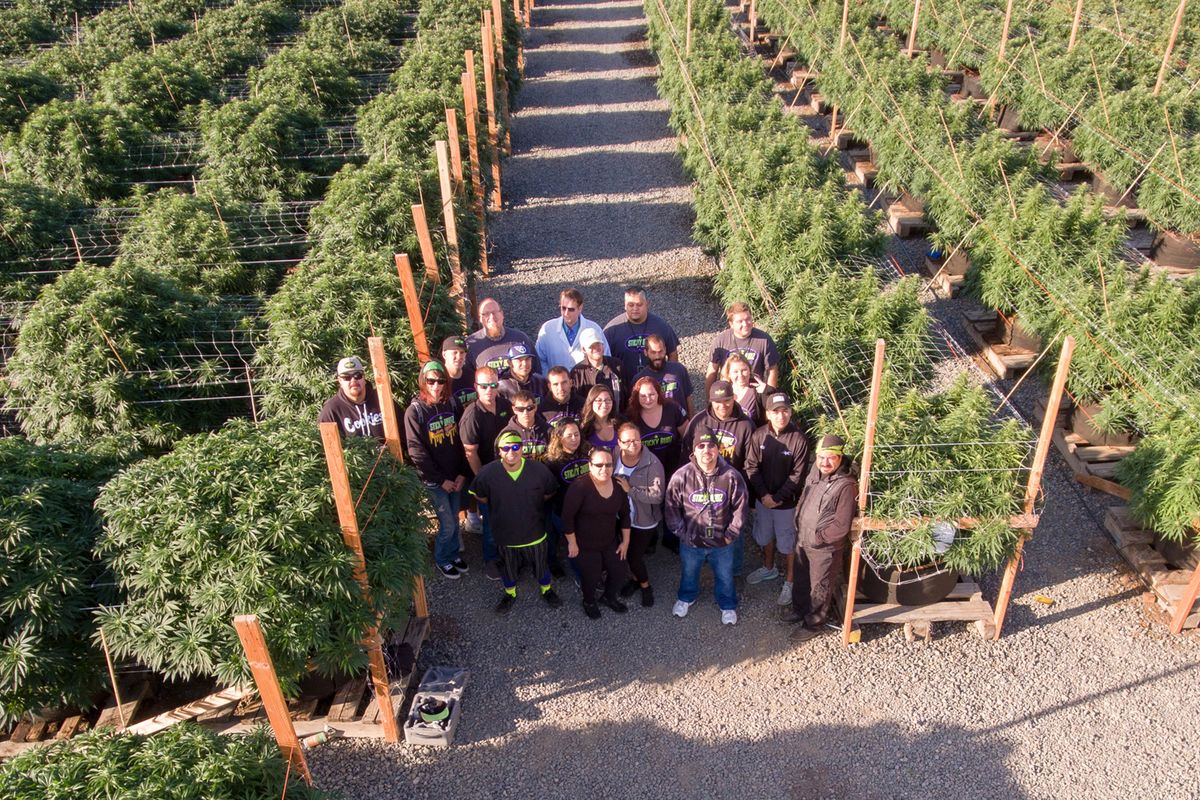Yakima-area grower perseveres despite county pushback

Talking to Jamie Muffett, it’s not hard to conclude that Yakima County officials never got the memo that cannabis became legal in Washington state five years ago.
Muffett is the owner of Sticky Budz, a producer/processer that received a state license in 2015 to begin growing cannabis.
Since then, he and his staff have been operating at a outdoor farm in an unincorporated area of the county, right outside of Zillah, and selling pre-rolls, topicals and other items statewide.
Now, he’s fighting for his right to continue to conduct business here, as are several other cannabis producers that have been told to shut down this year by the county.
Muffett said there is nothing near his agricultural location that breaks state rules, such as schools, playgrounds, parks, or other areas where youth might congregate.
County commissioners say it isn’t really them but county voters.
While Initiative 502 passed statewide in 2014 legalizing recreational cannabis, Yakima voters didn’t approve it. This led commissioners to quickly place a ban on recreational retail and production licenses in unincorporated areas.
Existing medical growers and dispensaries were allowed to continue, but all were declared illegal when the state’s medical and recreational systems merged in 2016.
An advisory vote in 2017 affirmed that 58 percent of voters wanted the ban to continue, which triggered the current shut-down actions. In 2018, the county sent cease-and-desist letters to more than 25 state-licensed cannabis businesses in unincorporated Yakima County.
Muffett felt that the wording on the advisory ballot was confusing to the point where voters he knew told him they weren’t sure if voting “yes” meant continuing the ban, or voting to approve marijuana. Also, it was on the ballot in an off year, with low voter turnout.
Though some growers have already relocated, closed their doors or been shut down by county action, Muffett is not ready for any of these options, partly because of the huge investment he’s made in infrastructure.
“They are basically forcing us out of the farming country into incorporated areas, the cities,” he said.
He and other growers have tried to work with the commissioners to keep growing, but said they never were able to reach any resolution. In past interviews, county officials defended their actions, saying they’re following the will of the voters and also complying with language in Initiative 502 that allows counties to opt out of licensing.
But Muffett is putting up a fight. He hoped he could take on the shut-down in a civil trial, but the commissioners requested a summary judgment.
Muffett appealed earlier this year, a process which could drag out another nine to 12 months.
“These guys (commissioners) band together, put the vote together with no input from industry,” Muffett said. “There hasn’t been one public complaint and they are taking action against all of us. We employ 23 people at this facility – they don’t care about jobs.”
Muffett’s theory is that commissioners are more interested in the potential of hemp as a cash crop instead of cannabis. The U.S. Farm Bill that passed in 2018 legalized hemp cultivation.
The Yakima Valley is already known for hops production and controlled by 25 farming families, most of whom already have received state hemp cultivation licenses. The hops plant is a member of the cannabaceae family, which includes about 170 species including hemp and its cousin cannabis.
The Washington Department of Agriculture also requires that hemp not be planted within 4 miles of cannabis plants to avoid possible cross-contamination to either plant.
“Big money wants hemp as opposed to cannabis,” he said.
Muffett has already spent upward of $100,000 to defend his case. Moving to a new location like a city that has available state licenses would likely require paying an inflated price to lease a new facility. But he said he has a strong company that won’t give up.
“We have chemical plants here that burn up, blow up or leak, that are horrible for our environment, and those are planted right in the middle of a community,” he said. “We’re an indoor/outdoor farmer in an agricultural area.”
Linda Ball is a freelance journalist based in Washington State. In her 18 years as a journalist she has covered a wide variety of topics including environmental issues, city hall, arts and entertainment, education, human interest stories and now the rapidly-changing cannabis industry.